
Mykonos: The Jewel of the Aegean Sea
Nestled in the heart of the Cyclades, Mykonos is a stunning Greek island that is famous for its vibrant nightlife, whitewashed buildings, and picturesque beaches. This island combines the charm of traditional Greek culture with modern luxuries, making it a favorite destination for travelers from all over the world. Mykonos Town, also known as Chora, is a labyrinth of narrow streets lined with shops, cafes, and bars. The iconic windmills and Little Venice, where buildings are perched on the water's edge, offer a perfect backdrop for stunning sunset views. Wander through the town to discover hidden gems, from art galleries to quaint churches. The island is also home to some of the most beautiful beaches in Greece. From the lively Paradise and Super Paradise beaches, known for their beach parties and DJ events, to the more tranquil Agios Sostis and Fokos beaches, there's a slice of paradise for everyone. Crystal clear waters and golden sands make it ideal for swimming, sunbathing, and water sports. History buffs will enjoy a trip to the nearby island of Delos, a UNESCO World Heritage site, which is easily accessible from Mykonos. Delos is one of the most important archaeological sites in Greece, offering a glimpse into ancient Greek civilization with its ruins and artifacts. Whether you're looking to dance the night away, relax by the beach, or explore ancient history, Mykonos offers a unique blend of experiences that cater to all tastes.
Local tips in Mykonos
- Visit Mykonos in the shoulder seasons of May-June or September-October to enjoy pleasant weather and fewer crowds.
- Rent a scooter or ATV to explore the island at your own pace and discover hidden beaches and scenic spots.
- Don't miss a day trip to Delos Island to explore its ancient ruins and learn about Greek history.
- Book your accommodation well in advance, especially if you plan to visit during the peak summer months.
- Experience the local cuisine by dining at traditional tavernas and trying dishes like moussaka, souvlaki, and fresh seafood.
Neighbourhoods in Mykonos
Mykonos: The Jewel of the Aegean Sea
Nestled in the heart of the Cyclades, Mykonos is a stunning Greek island that is famous for its vibrant nightlife, whitewashed buildings, and picturesque beaches. This island combines the charm of traditional Greek culture with modern luxuries, making it a favorite destination for travelers from all over the world. Mykonos Town, also known as Chora, is a labyrinth of narrow streets lined with shops, cafes, and bars. The iconic windmills and Little Venice, where buildings are perched on the water's edge, offer a perfect backdrop for stunning sunset views. Wander through the town to discover hidden gems, from art galleries to quaint churches. The island is also home to some of the most beautiful beaches in Greece. From the lively Paradise and Super Paradise beaches, known for their beach parties and DJ events, to the more tranquil Agios Sostis and Fokos beaches, there's a slice of paradise for everyone. Crystal clear waters and golden sands make it ideal for swimming, sunbathing, and water sports. History buffs will enjoy a trip to the nearby island of Delos, a UNESCO World Heritage site, which is easily accessible from Mykonos. Delos is one of the most important archaeological sites in Greece, offering a glimpse into ancient Greek civilization with its ruins and artifacts. Whether you're looking to dance the night away, relax by the beach, or explore ancient history, Mykonos offers a unique blend of experiences that cater to all tastes.
When is the best time to go to Mykonos?
Iconic landmarks you can’t miss
Mykonos • Port
The primary gateway to Mykonos, connecting you to the Cyclades Islands and beyond with bustling ferry and cruise services.
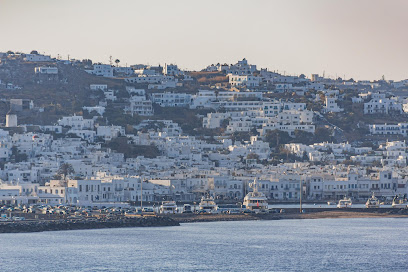
Archaeological Site of Delos
Discover the mythical birthplace of Apollo and Artemis, a UNESCO World Heritage site with remarkably preserved ancient ruins.
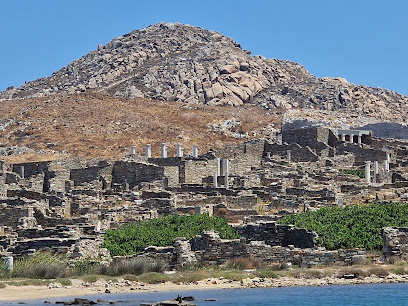
Windmills of Mykonos
Iconic 16th-century windmills overlooking the Aegean Sea, offering panoramic views and a glimpse into Mykonos' rich history.
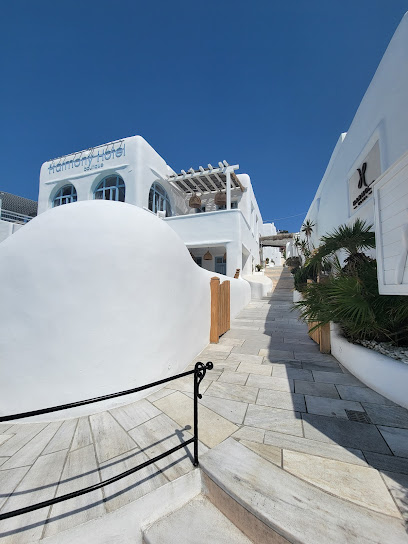
Armenistis Lighthouse
Discover the historic Armenistis Lighthouse in Mykonos: panoramic Aegean views, rich maritime history, and stunning sunset vistas.
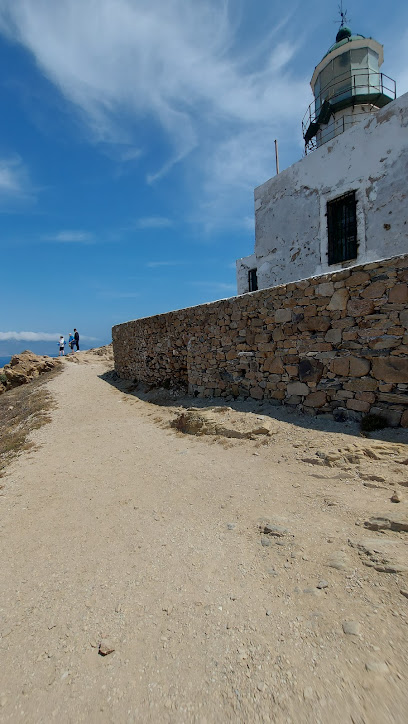
Monastery of Tourliani
Discover the serene beauty and rich history of the Monastery of Tourliani, a spiritual oasis in the heart of Mykonos.
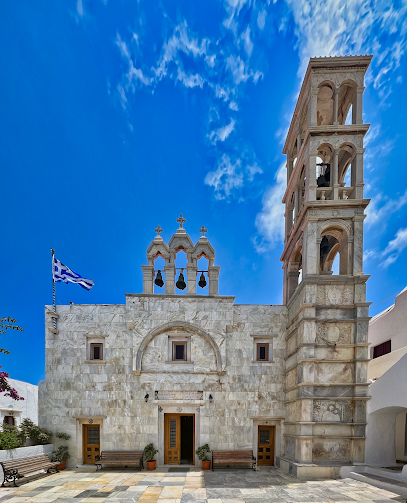
Manto Mavrogenous Statue
A tribute to Manto Mavrogenous, a heroine of the Greek War of Independence, in the heart of Mykonos Town.
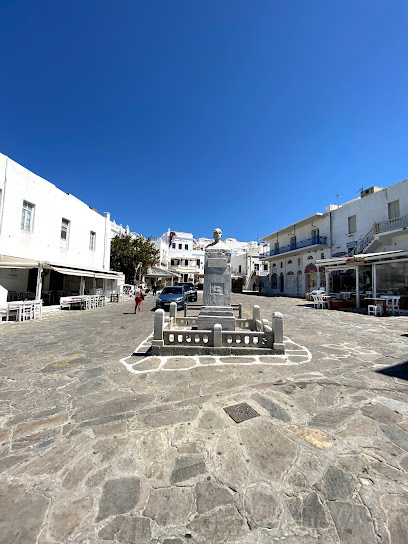
Church of Panagia Paraportiani
A stunning, asymmetrical, whitewashed church complex in Mykonos Town, famous for its unique Cycladic architecture and historical significance.
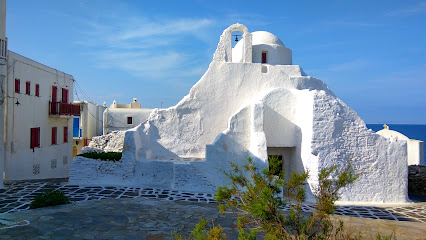
Tour In Mykonian Land & Wine Tasting Mykonos
Experience authentic Mykonian traditions: tour vineyards & olive groves, savor local wines & treats, and enjoy live music in a family-owned winery.
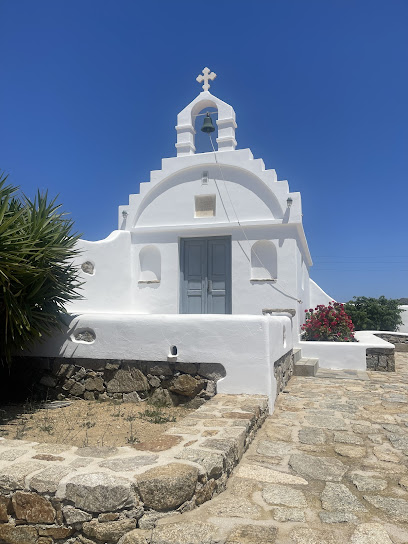
Mykonos Vioma Organic Farm
Discover Mykonos's authentic side at Vioma Organic Farm: wine tasting, local products, and a tranquil escape near Ano Mera.
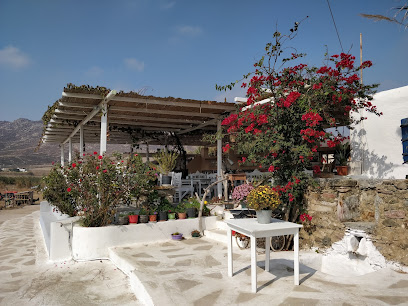
Mykonos Old Port
Discover the timeless charm of Mykonos Old Port: a picturesque harbor steeped in history, culture, and Aegean beauty.
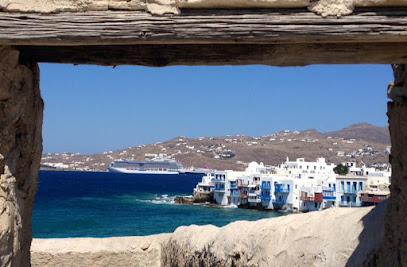
Cine Manto Mykonos
Escape to Cine Manto, Mykonos' open-air cinema oasis, for movies under the stars and a tranquil garden retreat.
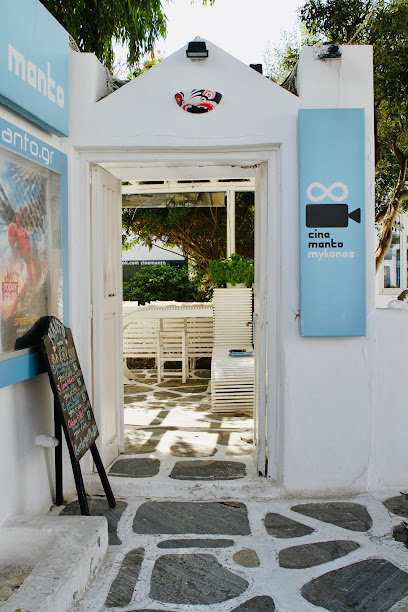
View of Alefkandra (Little Venice)
Experience the charm of Mykonos's Little Venice: colorful houses, stunning sunsets, and a vibrant waterfront scene steeped in history.
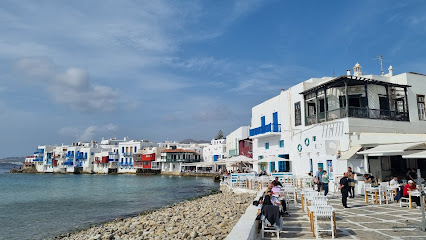
Archaeological Museum of Mykonos
Discover ancient Cycladic treasures at the Archaeological Museum of Mykonos, showcasing artifacts from Mykonos & neighboring Rhenia.
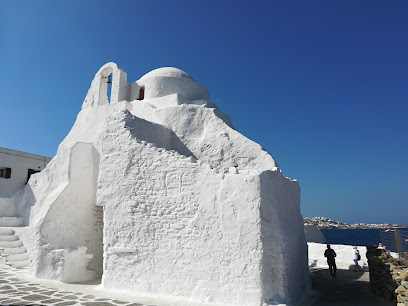
Terrace of the lions
Marvel at the Terrace of the Lions on Delos, a sacred island with a rich history. See the iconic marble guardians and explore ancient Greek civilization.
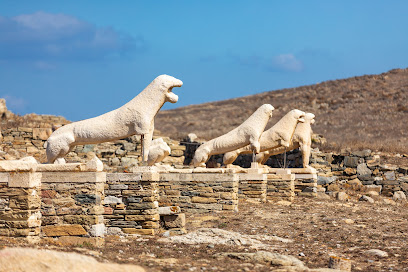
Mykonos Brewing Company
Experience the unique flavors of Mykonos with a tour and tasting at the island's first craft brewery, located in a unique underground setting.
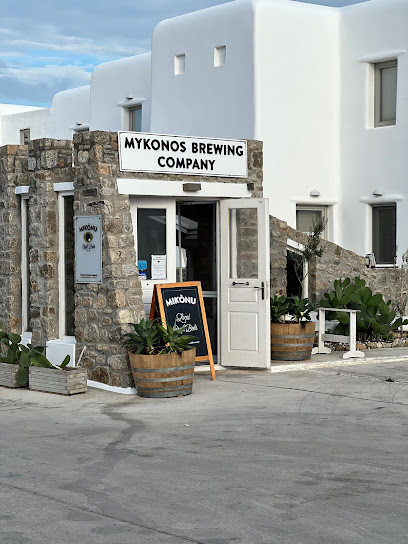
Unmissable attractions to see
Holy Church of the Virgin Mary Evangelistria at Tinos
Explore the Holy Church of the Virgin Mary Evangelistria, a stunning Greek Orthodox church in Tinos, renowned for its beauty and spiritual significance.
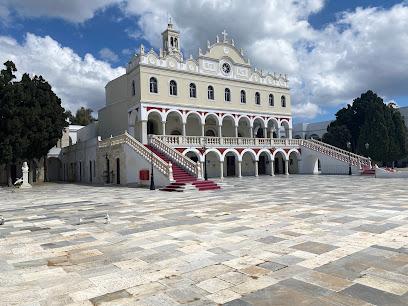
Paradise Beach
Discover the vibrant atmosphere and crystal-clear waters of Paradise Beach in Mykonos, a must-visit destination for sun-seekers and party lovers.
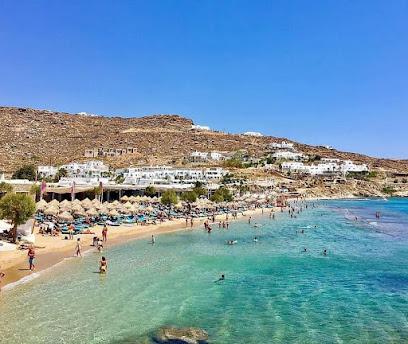
Temple of Apollo
Discover the magnificent Temple of Apollo on Naxos Island, a historical landmark steeped in ancient Greek culture and breathtaking views.
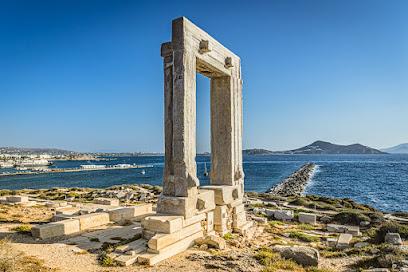
Super Paradise Beach Club
Experience the lively atmosphere and stunning beauty of Super Paradise Beach Club in Mykonos, where relaxation meets vibrant nightlife and unforgettable adventures await.
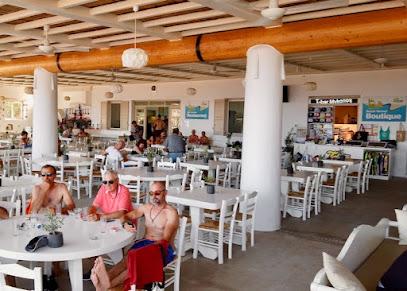
Mykonos Port
Discover the charm of Mykonos Port, your gateway to stunning beaches, vibrant nightlife, and the breathtaking beauty of the Aegean Sea.
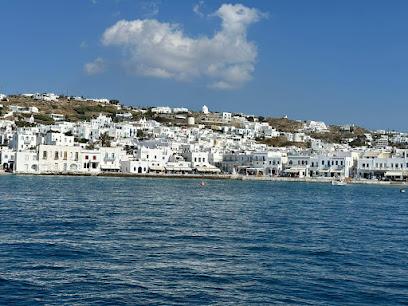
Archaeological Site of Delos
Explore the Archaeological Site of Delos, an ancient sanctuary rich in myth and history, offering visitors a glimpse into Greece's vibrant past amidst stunning Aegean scenery.
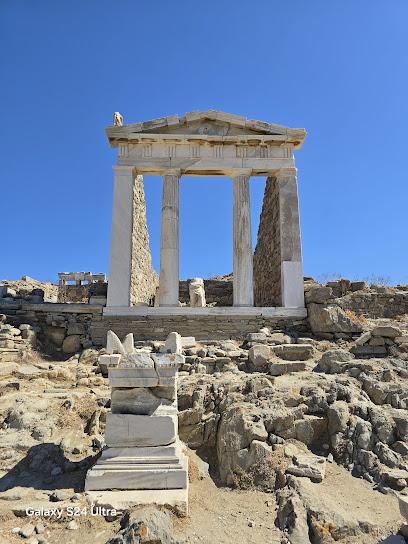
Holy Shrine of the Virgin Mary Ekatontapyliani
Discover the Holy Shrine of the Virgin Mary Ekatontapyliani in Paros, a historical gem and spiritual haven revered for its stunning architecture and rich Orthodox heritage.
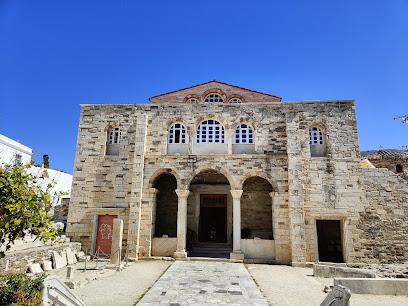
Kolympethres Beach
Experience the breathtaking beauty of Kolympethres Beach in Paros, Greece, where stunning landscapes meet crystal-clear waters for the ultimate getaway.
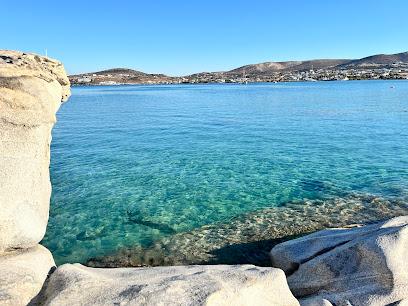
Agios Prokopios Beach
Experience the sun-kissed beauty and vibrant culture of Agios Prokopios Beach, a top destination on the stunning island of Naxos, Greece.
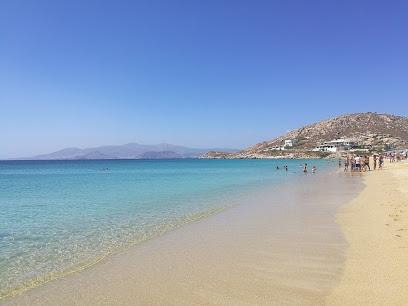
180º Sunset Bar
Discover the breathtaking views and exquisite cocktails at 180º Sunset Bar in Mykonos, where every sunset is a celebration of beauty and flavor.
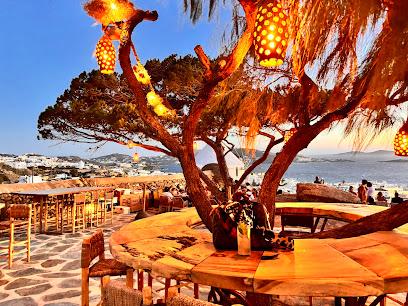
Mikri Vigla Beach
Discover the enchanting beauty of Mikri Vigla Beach in Naxos, where golden sands meet crystal-clear waters for a perfect beach getaway.
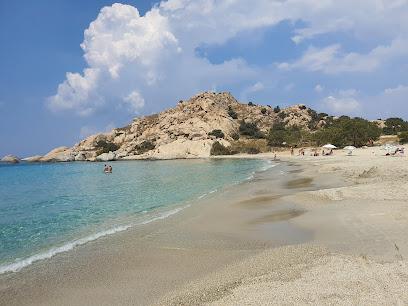
Kalafati Beach
Discover the beauty and tranquility of Kalafati Beach, a stunning coastal paradise on Mykonos with crystal-clear waters and a vibrant local culture.
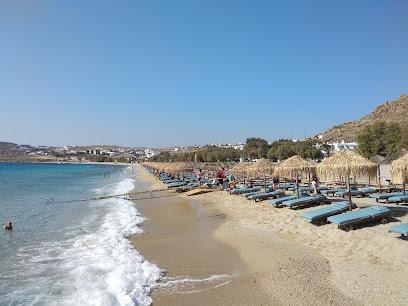
Temple of Demeter
Uncover the rich history of the Temple of Demeter in Drimalia, a stunning archaeological site that transports you back to ancient Greece.
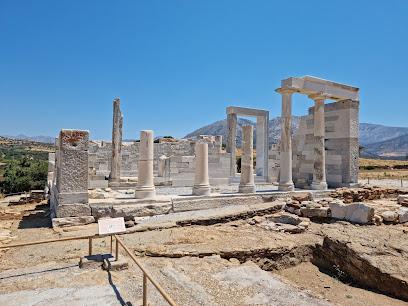
Ornos Beach
Experience the idyllic charm of Ornos Beach in Mykonos, where golden sands meet crystal-clear waters and vibrant beach culture.
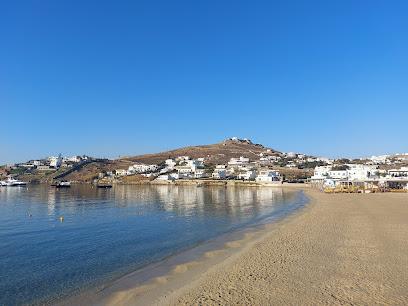
Monastiri beach
Experience the tranquility and beauty of Monastiri Beach in Paros, Greece, where golden sands meet crystal-clear waters in a picturesque setting.
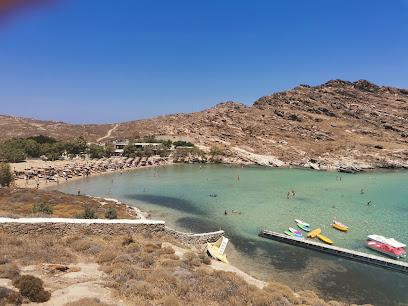
Essential places to dine
Niko's Taverna
Experience authentic Greek flavors at Niko's Taverna - your destination for fresh seafood and traditional cuisine in Mykonos.
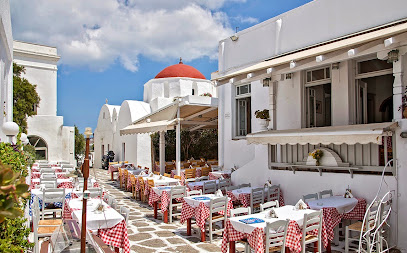
Italian Restaurant Mykonos - D'Angelo
Experience authentic Italian cuisine at D'Angelo in Mykonos - where every bite transports you to Italy amidst stunning island views.
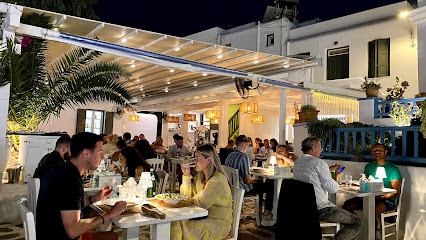
nice n easy
Discover the flavors of Greece at Nice n Easy in Little Venice - where fresh ingredients meet breathtaking views.
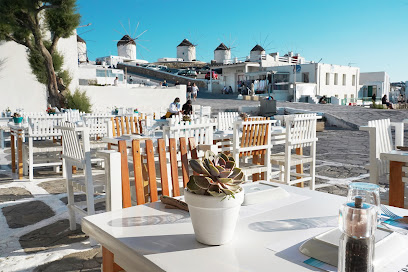
Sakis
Experience authentic Greek flavors at Sakis in Mykonos - a vibrant restaurant offering fresh cuisine and warm hospitality.
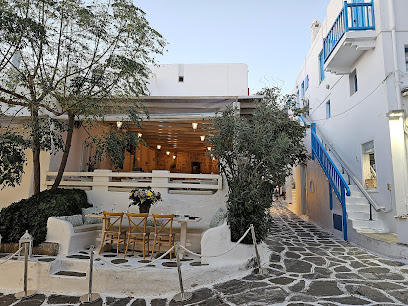
Nikolas Tavern Mykonos - Seafood Restaurant
Experience fresh seafood and traditional Greek flavors at Nikolas Tavern in Mykonos – where every meal is a celebration by the sea.
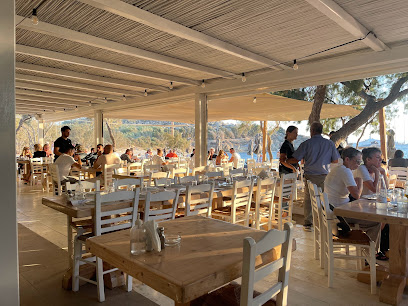
Captain's - Food for Sharing
Discover Captain's at Mykonos Waterfront – where exquisite small plates meet breathtaking views in a true culinary delight.
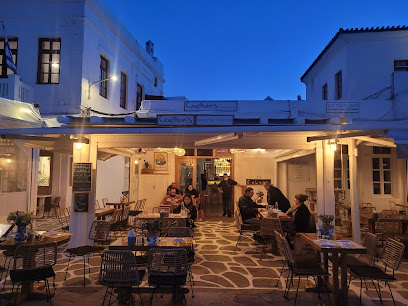
Avli Tou Thodori
Experience authentic Greek cuisine with stunning sea views at Avli Tou Thodori in Platis Gialos.
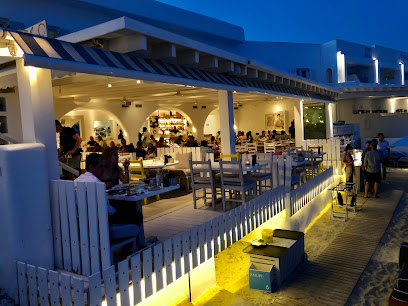
Yialo Yialo Restaurant Mykonos
Experience authentic Greek cuisine with stunning sea views at Yialo Yialo Restaurant in Mykonos - a true culinary delight.
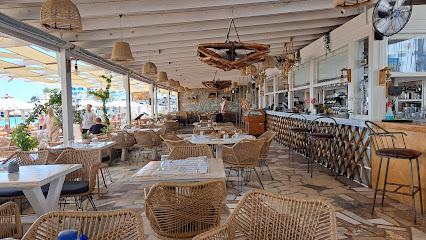
Pepper Souvlaki & More
Experience authentic Greek cuisine at Pepper Souvlaki & More in Mykonos Town – where tradition meets flavor.
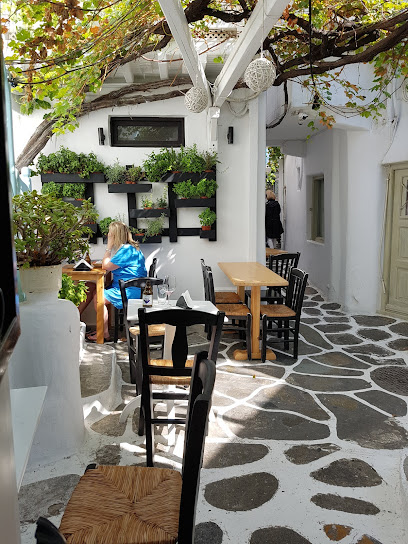
Kastro's Restaurant
Discover Kastro's Restaurant in Mykonos - where authentic Greek cuisine meets breathtaking views of Little Venice.
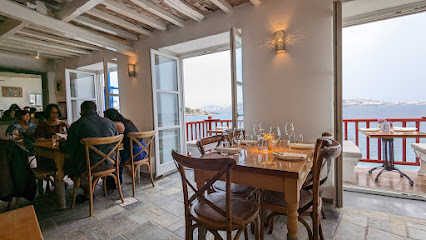
Nikos Gallop Restaurant
Experience authentic Greek cuisine at Nikos Gallop Restaurant near Platis Gialos Beach - where flavors meet stunning coastal views.
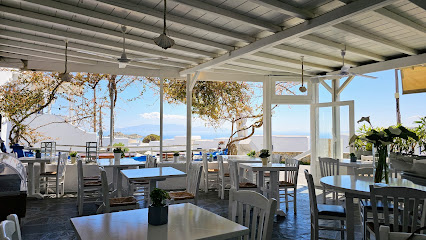
Vegera Restaurant Cafe Bar Mykonos
Experience authentic Greek seafood at Vegera Restaurant Cafe Bar in Mykonos - where stunning views meet exquisite flavors.
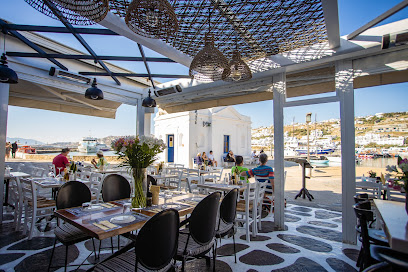
Raya Restaurant
Experience exquisite Greek cuisine with stunning sea views at Raya Restaurant in Mykonos - your perfect dining destination.
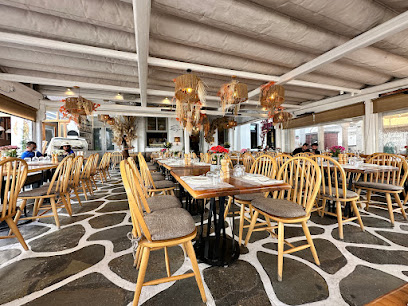
Promenade Restaurant
Discover fresh seafood delights at Promenade Restaurant in Mykonos – where culinary excellence meets breathtaking views.
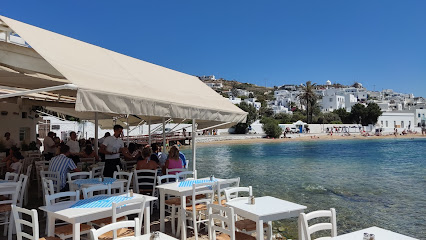
Baboulas Ouzeri
Experience the best seafood in Mykonos at Baboulas Ouzeri – where fresh flavors meet stunning seaside views.
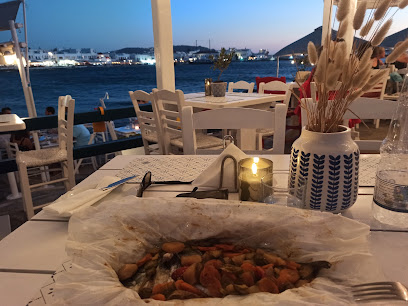
Markets, malls and hidden boutiques
AL GIGA MYKONOS
Explore Al Giga Mykonos for exclusive fashion accessories, unique perfumes, and trendy sunglasses that embody the spirit of the island.
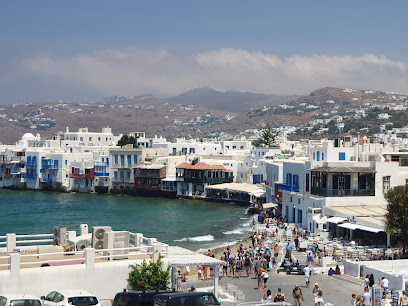
KALUS
Discover KALUS in Mykonos - your ultimate boutique for clothing, jewelry, and shoes, blending chic styles with local charm.
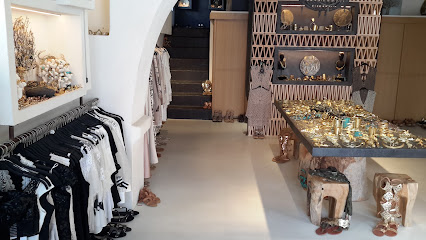
Ostria Boutique, Mykonos
Discover refined men's fashion at Ostria Boutique in Mykonos, where unique style meets Greek charm.
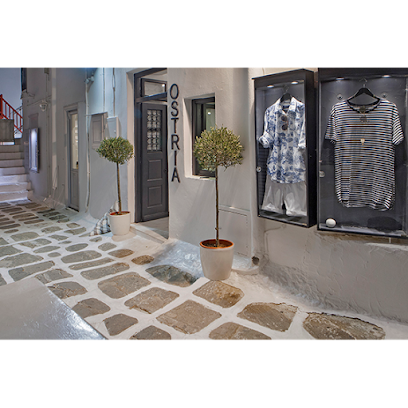
Anapolo
Discover unique souvenirs and local treasures at Anapolo, a charming store in the heart of Mykonos, perfect for capturing your Greek adventure.
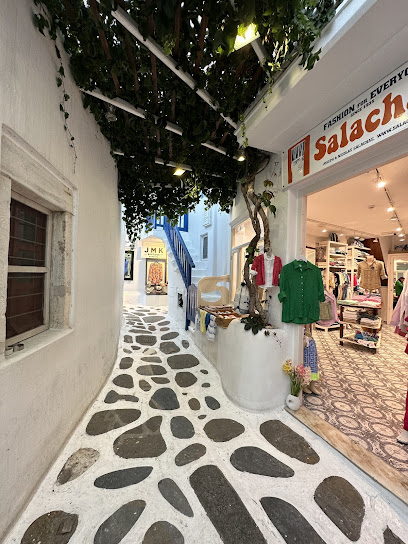
Gucci - MYKONOS DOWN TOWN
Discover luxury shopping at Gucci in the heart of Mykonos, featuring exclusive collections and a stylish ambiance.

Paris Valtadoros (Mykonos Boutique)
Explore Paris Valtadoros in Mykonos for stylish clothing that captures the essence of Greek island elegance and vibrant fashion.
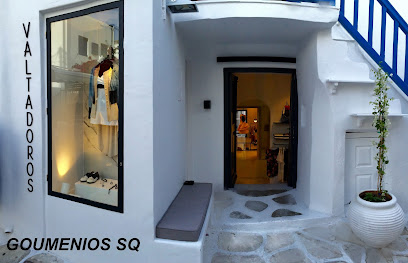
Bougainvillea Boutique Mykonos Jewelry & Clothing
Experience the charm of Mykonos at Bougainvillea Boutique, where exquisite jewelry and stylish clothing await in a vibrant shopping atmosphere.
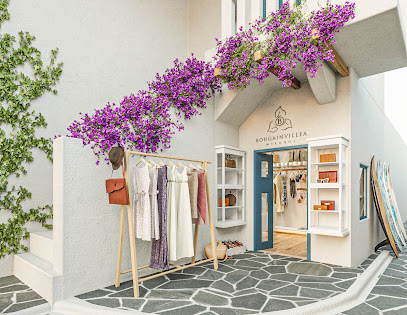
AMMON MYKONOS
Explore Ammon Mykonos, where local craftsmanship meets contemporary style in a unique shopping experience.
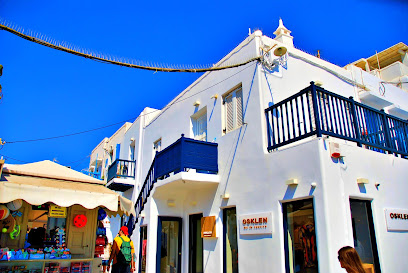
Sketch Boutique Mykonos
Experience the vibrant fashion scene at Sketch Boutique Mykonos, where contemporary style meets island charm in a unique shopping destination.
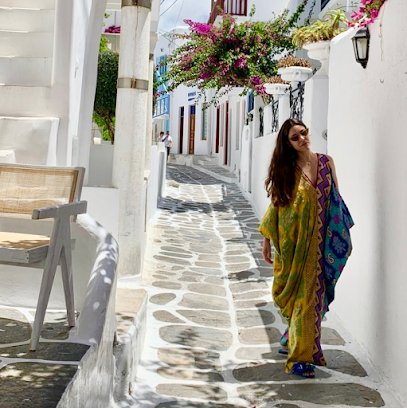
Happiness Mykonos
Explore the latest fashion trends at Happiness Mykonos, the ultimate clothing store on the beautiful island of Mykonos, Greece.
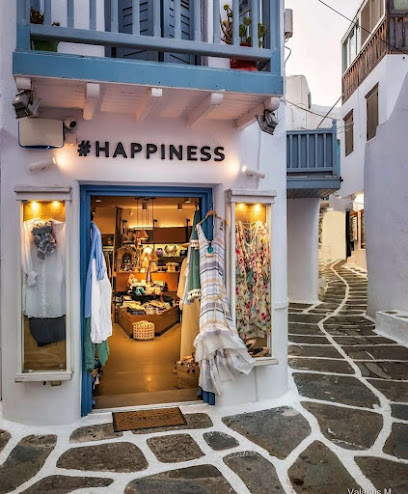
China shop
Explore the vibrant fashion scene of Mykonos at the China Shop, a clothing store full of unique styles and accessories.
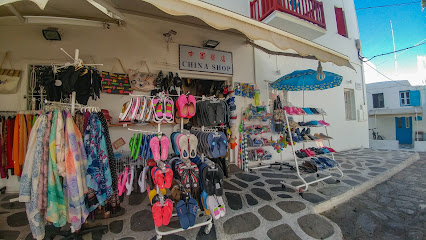
LAPIN HOUSE
Discover Lapin House, the premier shopping destination in Mykonos, blending high fashion with local charm in a vibrant ambiance.
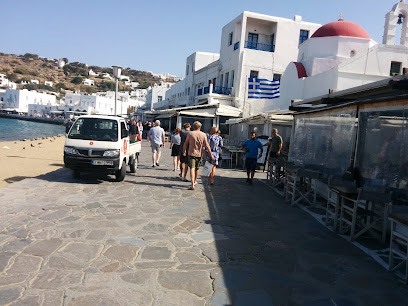
LALLOUZ Sarris Mykonos Unique Art gifts from Greek designers
Explore LALLOUZ Sarris in Mykonos for unique art gifts, handcrafted jewelry, and exquisite pottery from talented Greek designers.
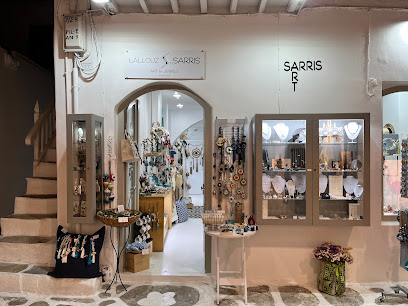
Soho Soho Mykonos Men
Explore Soho Soho Mykonos Men for chic fashion accessories that embody the spirit of Mykonos style, perfect for every occasion.
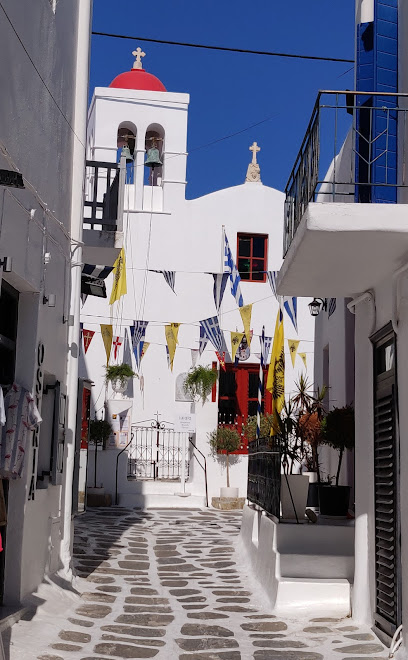
ALCHEMIST E.E.
Explore the essence of Mykonos at Alchemist E.E., where unique souvenirs and local treasures await every traveler.
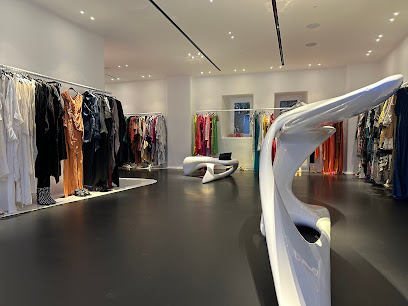
Essential bars & hidden hideouts
Semeli Bar, Little Venice
Discover Semeli Bar in Little Venice, a vibrant hotspot for exquisite drinks, stunning views, and unforgettable nightlife on Mykonos.
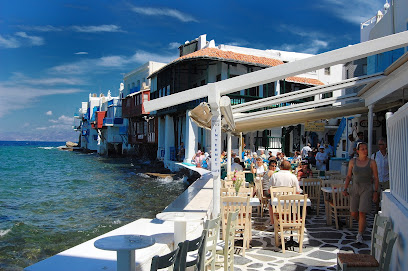
180º Sunset Bar
Experience exquisite cocktails and breathtaking views at Mykonos' 180º Sunset Bar, the perfect spot for sunset lovers and nightlife enthusiasts.
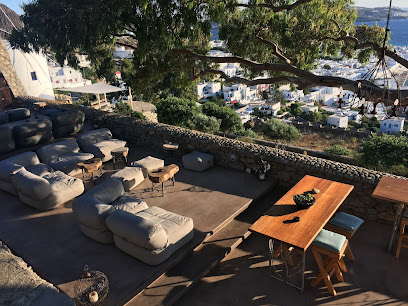
Skandinavian Bar Mykonos
Discover the nightlife magic at Skandinavian Bar Mykonos, where cocktails, music, and unforgettable memories await in a vibrant setting.
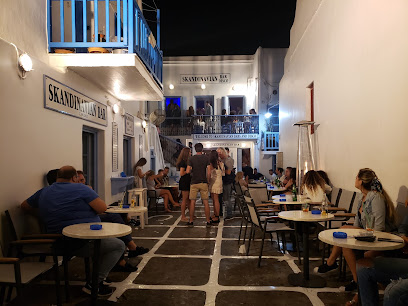
Katerina's Restaurant & Cocktail Bar
Experience the essence of Mykonos at Katerina's Restaurant & Cocktail Bar, where culinary delights and stunning views await every visitor.
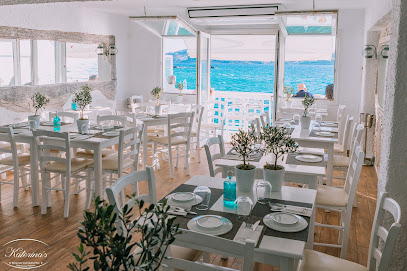
Scarpa bar
Discover the vibrant nightlife at Scarpa Bar in Mykonos, where stunning views, exquisite drinks, and electrifying music create unforgettable experiences.
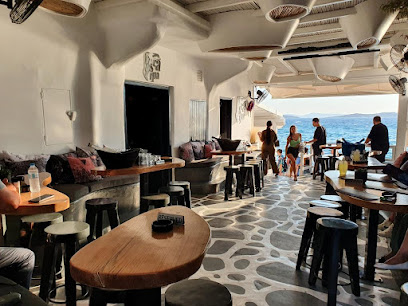
CERISE BAR
Experience the vibrant nightlife at Cerise Bar in Mykonos, where exquisite cocktails and stunning views create unforgettable moments by the sea.
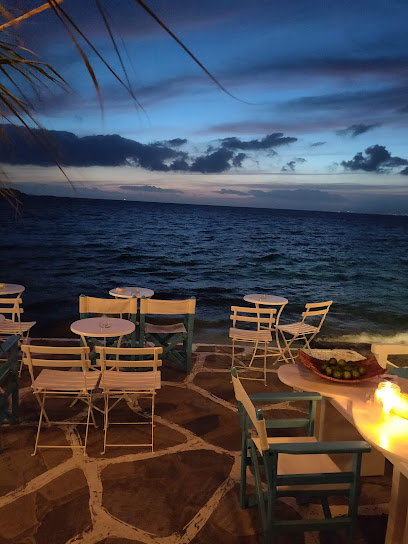
NEGRITA MYKONOS
Experience the vibrant atmosphere and stunning views at Negrita Mykonos, where refreshing drinks meet the beauty of the Mediterranean.
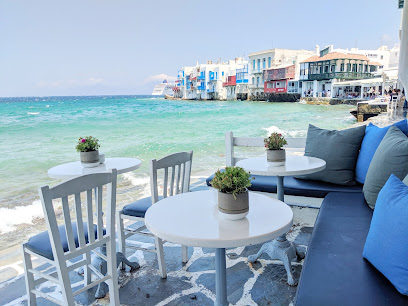
Queen of Mykonos
Discover the ultimate nightlife destination in Mykonos at the Queen of Mykonos, where vibrant ambiance meets expertly crafted cocktails.
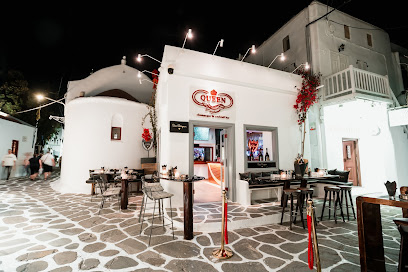
Lola Bar
Experience the vibrant nightlife at Lola Bar, Mykonos' premier gay bar, where creativity meets community in a stunning atmosphere.
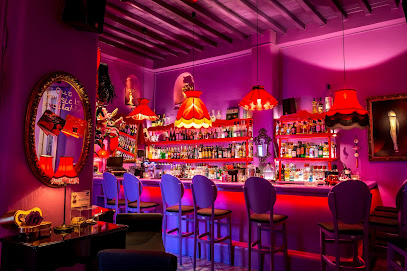
Bao's Cocktail Bar Mykonos
Discover the lively Bao's Cocktail Bar in Mykonos, where innovative cocktails meet an electric atmosphere for unforgettable nights.
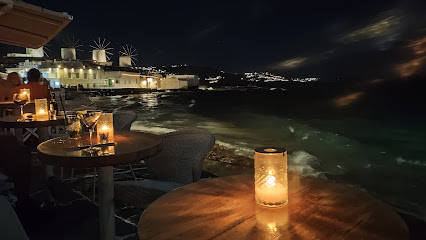
Alley Cafe
Experience the vibrant nightlife of Mykonos at Alley Cafe, where unique cocktails and friendly service create unforgettable moments.
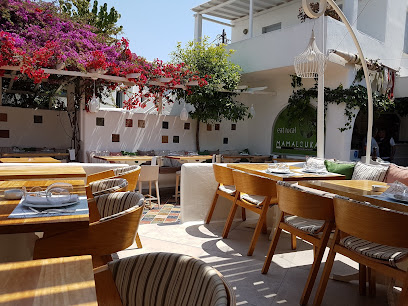
Notorious
Discover Notorious Cocktail Bar in Mykonos: A vibrant spot for exquisite cocktails and unforgettable nightlife experiences on the island.
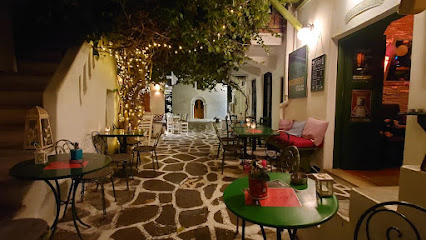
Cosi bar Mykonos
Experience the vibrant nightlife of Mykonos at Cosi Bar, where exquisite drinks and a lively atmosphere await every visitor.
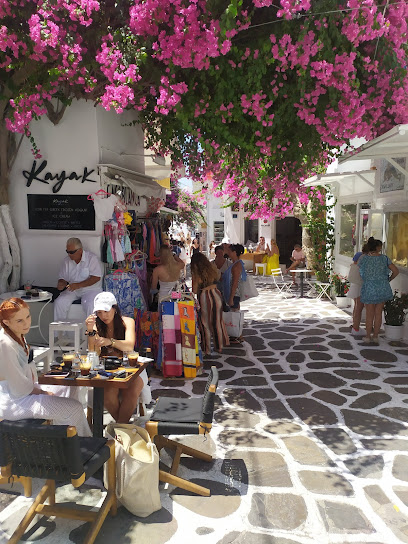
54 Cocktail Bar & Sunset Lounge
Experience breathtaking sunsets and exquisite cocktails at 54 Cocktail Bar & Sunset Lounge in Mykonos, a perfect retreat for tourists seeking elegance.
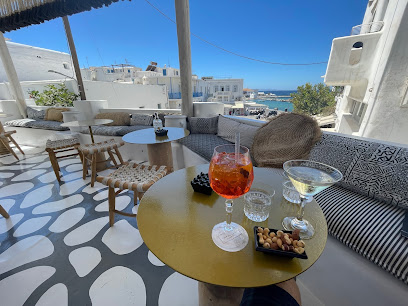
ARGO BAR
Experience the vibrant nightlife of Mykonos at Argo Bar, where stunning views and delicious cocktails create unforgettable moments.

Travel experiences inspired by this city
Explore more travel diariesLocal Phrases
-
- HelloΓεια σας
[Ya sas] - GoodbyeΑντίο
[Adio] - YesΝαι
[Ne] - NoΌχι
[Ohi] - Please/You're welcomeΠαρακαλώ
[Parakalo] - Thank youΕυχαριστώ
[Efharisto] - Excuse me/SorryΣυγνώμη
[Signomi] - How are you?Πώς είστε;
[Pos iste?] - Fine. And you?Καλά. Εσείς;
[Kala. Esis?] - Do you speak English?Μιλάτε αγγλικά;
[Milate anglika?] - I don't understandΔεν καταλαβαίνω
[Den katalaveno]
- HelloΓεια σας
-
- I'd like to see the menu, pleaseΘα ήθελα να δω το μενού, παρακαλώ
[Tha ithela na do to menu, parakalo] - I don't eat meatΔεν τρώω κρέας
[Den troo kreas] - Cheers!ΥΓΕΙΑ!
[Yia] - I would like to pay, pleaseΘα ήθελα να πληρώσω, παρακαλώ
[Tha ithela na plirosso, parakalo]
- I'd like to see the menu, pleaseΘα ήθελα να δω το μενού, παρακαλώ
-
- Help!Βοήθεια!
[Voithia!] - Go away!Φύγε!
[Fiye!] - Call the Police!Καλέστε την Αστυνομία!
[Kaleste tin Astinomia!] - Call a doctor!Καλέστε έναν γιατρό!
[Kaleste enan giatro!] - I'm lostΈχω χαθεί
[Eho hathi] - I'm illΕίμαι άρρωστος
[Ime arrostos]
- Help!Βοήθεια!
-
- I'd like to buy...Θα ήθελα να αγοράσω...
[Tha ithela na agoraso...] - I'm just lookingΑπλά κοιτάω
[Apla kitao] - How much is it?Πόσο κοστίζει;
[Poso kostizi?] - That's too expensiveΑυτό είναι πολύ ακριβό
[Afto ine poli akribo] - Can you lower the price?Μπορείτε να μειώσετε την τιμή;
[Boreite na miosete tin timi?]
- I'd like to buy...Θα ήθελα να αγοράσω...
-
- What time is it?Τι ώρα είναι;
[Ti ora ine?] - It's one o'clockΕίναι μία ώρα
[Ine mia ora] - Half past (10)Μισή (10)
[Misi (10)] - MorningΠρωί
[Proi] - AfternoonΑπόγευμα
[Apoyevma] - EveningΒράδυ
[Vradi] - YesterdayΧθες
[Hthes] - TodayΣήμερα
[Simera] - TomorrowΑύριο
[Avrio] - 1Ένα
[Ena] - 2Δύο
[Dio] - 3Τρία
[Tria] - 4Τέσσερα
[Tessera] - 5Πέντε
[Pente] - 6Έξι
[Exi] - 7Επτά
[Epta] - 8Οκτώ
[Okto] - 9Εννέα
[Ennea] - 10Δέκα
[Deka]
- What time is it?Τι ώρα είναι;
-
- Where's a/the...?Πού είναι ένα/το...;
[Pou ine ena/to...?] - What's the address?Ποια είναι η διεύθυνση;
[Pia ine i diefthinsi?] - Can you show me (on the map)?Μπορείτε να μου δείξετε (στο χάρτη);
[Boreite na mou dixete (sto charti)?] - When's the next (bus)?Πότε είναι το επόμενο (λεωφορείο);
[Pote ine to epomeno (leoforeio)?] - A ticket (to ....)Ένα εισιτήριο (για το...);
[Ena isitirio (ya to...)?]
- Where's a/the...?Πού είναι ένα/το...;
History of Mykonos
-
Mykonos, a jewel of the Cyclades, traces its roots back to ancient times. The island is named after Mykons, a local hero who was supposedly a descendant of the god Apollo. Archaeological findings suggest that Mykonos was inhabited since the early Neolithic period, with remnants of early settlements and tools providing a glimpse into its prehistoric past.
-
In Greek mythology, Mykonos is closely associated with Hercules. It is said that the legendary hero defeated the Giants during the Gigantomachy and buried them under the rocks of Mykonos. This mythological connection added a layer of mystical allure to the island, making it a subject of ancient lore and storytelling.
-
During the Classical and Hellenistic periods, Mykonos thrived as a maritime hub due to its strategic location. The island developed strong trade connections with other parts of Greece and the Mediterranean. It became known for its bustling harbors, flourishing commerce, and the establishment of numerous temples and public buildings.
-
Under Roman rule, Mykonos continued to prosper, benefiting from the Pax Romana which facilitated trade and cultural exchange. During the Byzantine era, the island experienced significant religious influence, with the construction of several Christian churches and monasteries. Mykonos became a vital religious center in the Aegean Sea.
-
In the early 13th century, Mykonos came under Venetian control, which lasted until the Ottoman Turks conquered the island in the 16th century. The Venetians fortified Mykonos, constructing castles and defensive structures. Under Ottoman rule, Mykonos faced periods of hardship, including pirate attacks and heavy taxation, but managed to retain a degree of autonomy and cultural identity.
-
Mykonos played a significant role in the Greek War of Independence against Ottoman rule. In 1822, the island's inhabitants, led by the renowned heroine Manto Mavrogenous, bravely defended Mykonos from Turkish attacks. Manto Mavrogenous became a national symbol of courage and resistance, and her legacy is still celebrated on the island today.
-
The 20th century brought profound changes to Mykonos. The island transitioned from a quiet, agrarian society to a world-famous tourist destination. The advent of air travel and the rise of the global tourism industry transformed Mykonos into a hotspot for celebrities, artists, and travelers from around the world. Its picturesque landscapes, vibrant nightlife, and rich cultural heritage attracted an international audience.
-
Today, Mykonos seamlessly blends its ancient history with modern luxury. The island is renowned for its whitewashed buildings, iconic windmills, and pristine beaches. It remains a cultural melting pot, hosting international festivals, art exhibitions, and maintaining its status as a premier travel destination. Despite its popularity, Mykonos has managed to preserve its unique charm, making it a must-visit location for history enthusiasts and travelers alike.
Mykonos Essentials
-
Mykonos is accessible by air and sea. The Mykonos Island National Airport (JMK) offers regular flights from Athens and other European cities. Alternatively, ferries from Athens (Piraeus and Rafina ports) and other Cycladic islands like Santorini and Naxos operate frequently. The ferry ride from Athens takes about 3-5 hours depending on the type of vessel.
-
Mykonos has a well-developed public transportation system, including buses that connect major towns and beaches. Taxis are available but can be scarce during peak times. Renting a car, ATV, or scooter is a popular option for exploring the island at your own pace. Walking is also feasible within Mykonos Town (Chora) due to its compact nature.
-
The official currency is the Euro (EUR). Credit cards are widely accepted in hotels, restaurants, and shops, though some smaller establishments may prefer cash. ATMs are readily available across the island. It is advisable to carry some cash, especially for use in more remote areas or small businesses.
-
Mykonos is generally safe for tourists. Petty crimes like pickpocketing can occur, especially in crowded areas like Mykonos Town and popular beaches. Always keep an eye on your belongings and avoid leaving valuables unattended. There are no specific high-crime areas, but staying vigilant is always recommended.
-
In case of an emergency, dial 112 for immediate assistance. Mykonos has a hospital located near the town of Ano Mera, along with several pharmacies across the island. Travel insurance that covers medical emergencies is highly recommended. For minor health issues, local pharmacies can provide over-the-counter medications.
-
Fashion: Do wear comfortable, casual clothing, but avoid beachwear in town. At night, casual chic is appreciated in restaurants and bars. Religion: Do respect religious sites by dressing modestly and keeping noise levels down. Public Transport: Do have your ticket ready when boarding the bus. Don't eat or drink on public transport. Greetings: Do greet people with a friendly 'Kalimera' (Good morning) or 'Kalispera' (Good evening). Eating & Drinking: Do try local dishes and wines. Don't rush; meals are meant to be enjoyed leisurely.
-
Experience Mykonos like a local by exploring its lesser-known beaches like Agios Sostis and Fokos. Visit local tavernas for authentic Greek cuisine. Attend a traditional Greek night with live music and dancing. Avoid visiting popular spots during peak hours to enjoy a more relaxed atmosphere. Engage with locals who are often friendly and willing to share insider tips about the island.
Trending Landmark in Mykonos
-
Mykonos • Port
-
Archaeological Site of Delos
-
Windmills of Mykonos
-
Armenistis Lighthouse
-
Monastery of Tourliani
-
Manto Mavrogenous Statue
-
Church of Panagia Paraportiani
-
Tour In Mykonian Land & Wine Tasting Mykonos
-
Mykonos Vioma Organic Farm
-
Mykonos Old Port
-
Cine Manto Mykonos
-
View of Alefkandra (Little Venice)
-
Archaeological Museum of Mykonos
-
Terrace of the lions
-
Mykonos Brewing Company
Nearby Cities to Mykonos
-
Things To Do in Santorini
-
Things To Do in Pyrgos
-
Things To Do in Samos
-
Things To Do in Athens
-
Things To Do in Kusadasi
-
Things To Do in Kos
-
Things To Do in Ephesus
-
Things To Do in Bodrum
-
Things To Do in Izmir
-
Things To Do in Nafplio
-
Things To Do in Heraklion
-
Things To Do in Rethymno
-
Things To Do in Chania
-
Things To Do in Crete
-
Things To Do in Marmaris
























